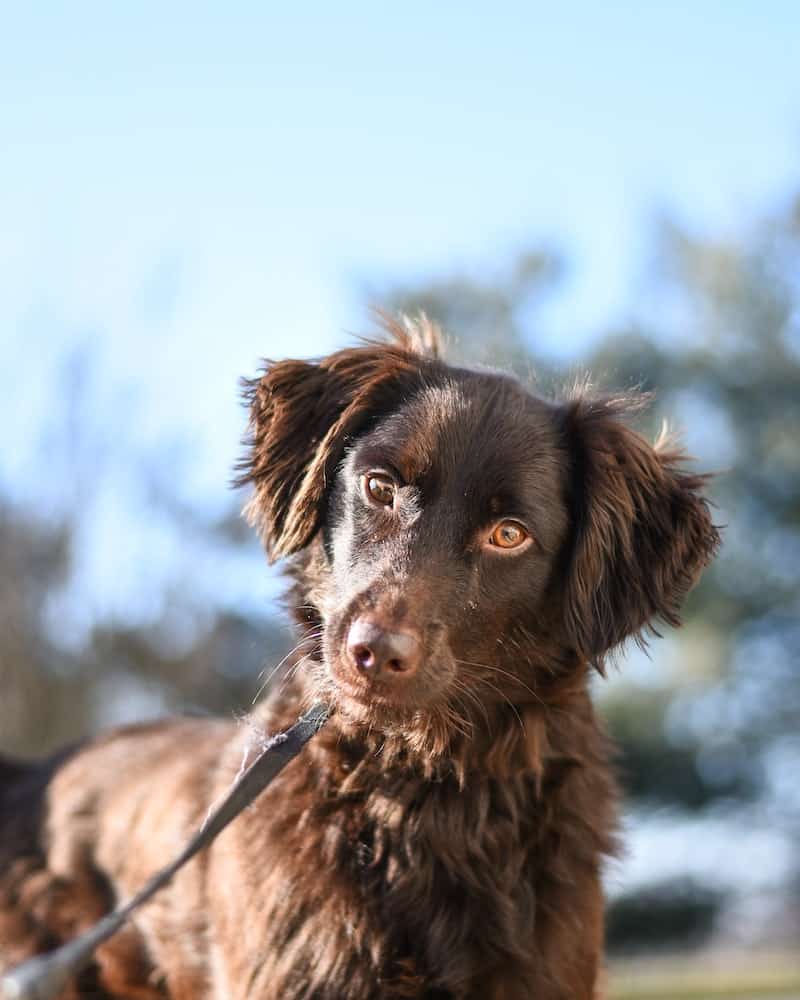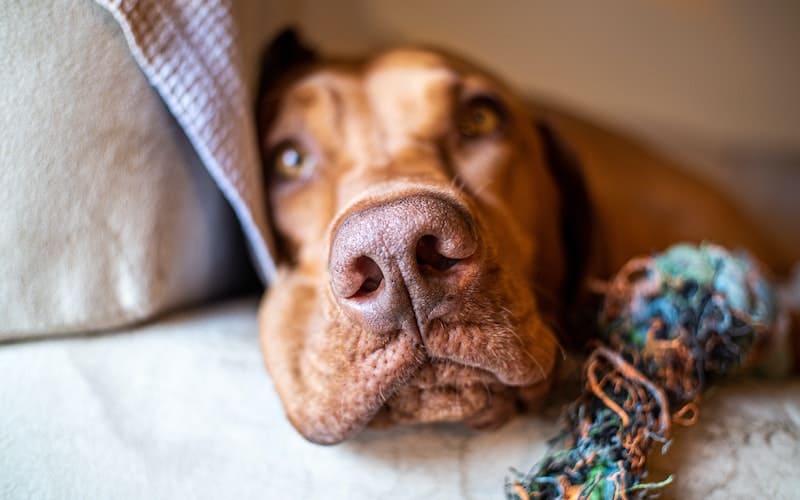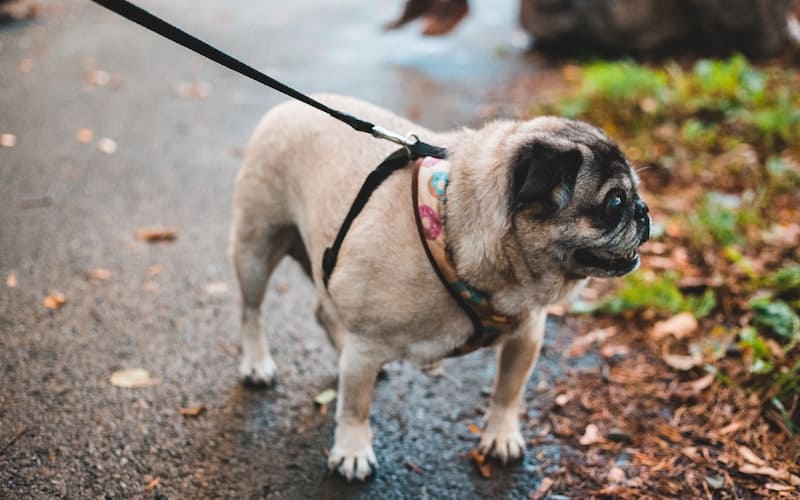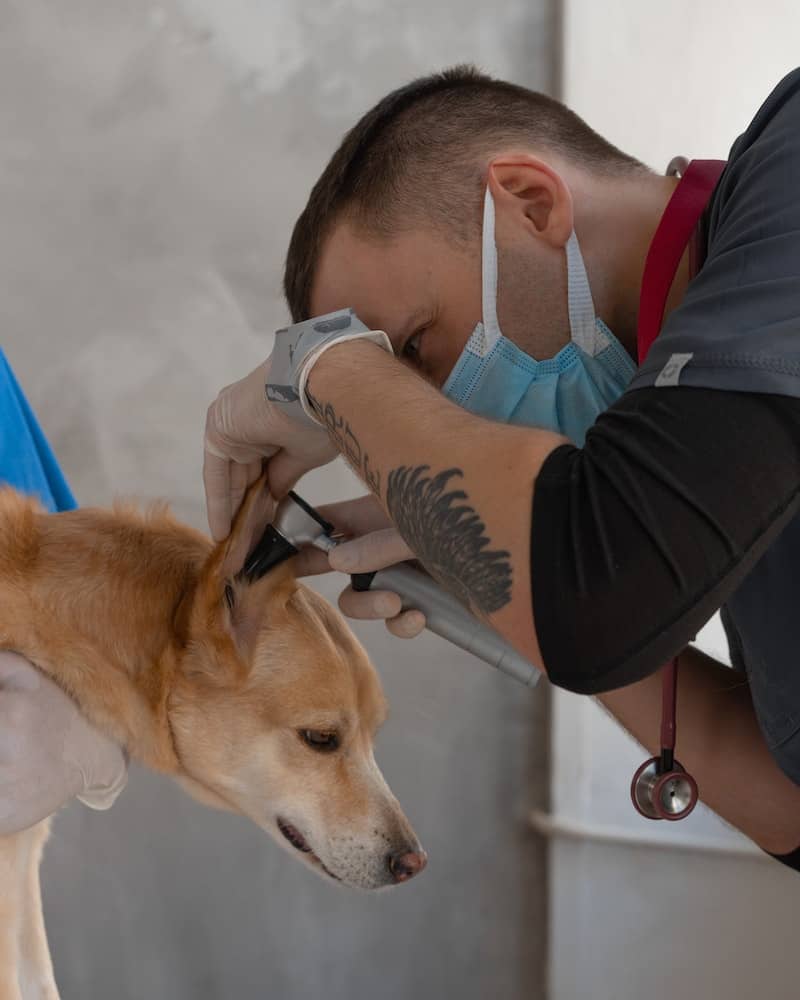Last Updated on October 25, 2023 by ellen
Why are dogs noses always wet? What does it mean if your dog has a wet nose. Learn more about what this means.
Posts may be sponsored. This post contains affiliate links, which means I will make a commission at no extra cost to you should you click through and make a purchase. As an Amazon Associate I earn from qualifying purchases.
Table of Contents
Why are Dogs Noses Always Wet?
If you’ve ever gotten up close to your dog, you might have noticed your dog’s nose is wet. What does this mean? And, what does it mean if your dog has a dry nose?
Dogs are fascinating creatures, aren’t they? One of their intriguing characteristics is their often wet nose. You may wonder why it’s like that. Is it just something random, or does it serve a purpose? It’s a common question that many dog owners and dog lovers have.
The answer is rather interesting and shows how dogs have adapted over centuries. A dog’s nose is typically wet due to a thin layer of mucus. This layer of mucus helps them absorb scent chemicals from the environment. Thus, if you see a healthy dog with a wet nose, it’s a sign that their sense of smell is hard at work!
However, in some cases, dry noses or wet noses can indicate a health problem like a respiratory infection. Schedule a vet visit to be sure.
So, why is my dog’s nose wet?
Should your dog’s nose be wet?
Yes, it’s normal for a dog’s nose to be wet. Having a wet nose helps dogs to smell better. The moisture on the nose attracts and “catches” more of the tiny odor particles in the air, so it helps dogs to pick up scents. It’s like having a built-in air filter for smells!
But, if your dog’s nose is always dry, don’t worry too much. Sometimes, a dog’s nose might be dry due to the weather, the air, or because they’ve just woken up from a nap. It doesn’t always mean your dog is ill.
If your dog’s nose is dry but they are eating, drinking, playing, and acting normal, then there probably isn’t anything to worry about. But, if your dog’s nose is dry and cracked, or it’s dry along with other signs of illness, then it might be a good idea to visit the vet.
What does it mean if a dog’s nose is dry?
A dry nose in dogs doesn’t necessarily signify illness. Just as human skin varies from person to person, a dog’s skin and nose moisture level can also differ based on several factors. Some dogs naturally have a dry nose, while certain dog breeds might have a dry nose due to their physical characteristics.
Moreover, a dog’s nose can become dry and warm following sleep, or due to exposure to heat, wind, or air conditioning. You may want to try this dog nose butter.
However, a persistently dry nose that is cracked can sometimes indicate a health issue. If your dog’s nose stays dry for an extended period and is accompanied by other symptoms such as lethargy, loss of appetite, or changes in behavior or appearance, it could be a sign of an underlying medical condition.
In such cases, it’s recommended to seek veterinary care to properly diagnose and treat the issue. Always remember, when in doubt, consult a professional.
5 common causes of cold wet dog noses
Natural Bodily Function: As we mentioned earlier, dogs have a thin layer of mucus on their noses that helps them absorb scent. This is a completely natural and healthy bodily function.
Cooling Down: Dogs don’t sweat like humans. They pant and also use their wet noses to regulate body temperature. This helps your dog cool down when it’s hot.
Hydration: A dog’s nose may be wet if they have just had a drink of water. Remaining well-hydrated can also help keep a dog’s nose moist.
Grooming: Dogs lick their noses, which keeps them wet. This is a part of their natural grooming behavior.
Environment: Weather and environmental conditions, like humidity, can influence the wetness of a dog’s nose. They may have a wetter nose in a damp climate, for instance.
What does an overly wet nose mean?
An overly wet nose may be a sign that your dog has a runny nose or is producing excessive mucus, potentially due to an allergy or slight irritation. However, if it is accompanied by other symptoms like coughing, sneezing, difficulty breathing, or if the mucus is discolored, it could be a sign of an infection or a more serious condition.
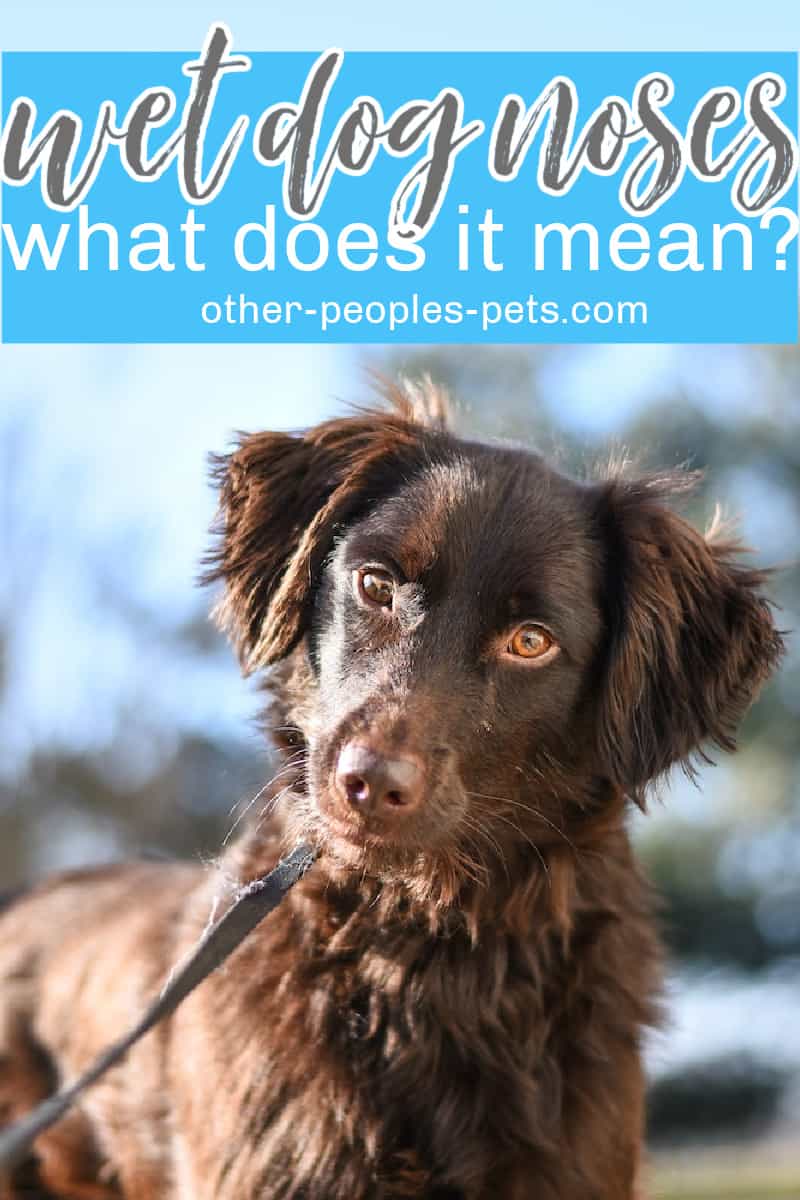
Why are dogs noses always wet? What does it mean if your dog has a wet nose. Learn more about what this means.
Wet noses are often perfectly normal. But, if you notice these signs, it’s best to consult your vet. Always remember, your pet’s health is paramount! Signs like this can indicate respiratory infections especially if there is nasal discharge coming out of your dog’s nose.
Mucus secretion
Mucus secretion in a dog’s nose is a natural process that helps with their sense of smell. This mucus captures scent particles from the air so the dog can analyze and understand them. Think of it like a sticky note that catches all the important information.
When dogs lick their noses, they’re transferring these scent particles to their sense organ (known as Jacobson’s organ) to get even more information. So, a wet nose is a sign that your dog is collecting lots of data about their surroundings!
Sense of smell
A dog’s sense of smell is remarkably powerful, far superior to that of humans. This heightened olfactory ability allows dogs to pick up various scents and odors, aiding them in navigation, finding food, and identifying friends or potential threats.
The wetness of their noses aids in this process, enhancing their ability to capture and decipher the myriad of smells that surround them in their environment. So, a moist nose is a signal of a healthy and functioning sensory system.
This is especially important in hunting dogs and working dogs.
Sweating through their nose
Dogs do not sweat like we do. Humans have sweat glands all over their bodies, but dogs only have these glands in their paw pads. However, dogs use their wet noses as another way to cool down. When the moisture on their nose evaporates, wet noses help to lower their body temperature. So you could say that dogs “sweat” through their nose too!
When to contact a vet about a dry dog nose
What does it mean if your dog has a dry nose. If your dog’s nose is persistently dry, and this condition is coupled with other signs of discomfort or illness, it’s time to consult with a vet.
Symptoms like lethargy, lack of appetite, unusual changes in behavior, or visible cracking and bleeding from the nose are indications that your pet may need medical intervention.
Remember, a vet is the best person to diagnose and address your dog’s health concerns. Don’t neglect persistent symptoms and always prioritize your pet’s well-being. A dry nose may not be an issue at all, but it’s best to ask your vet.
Healthy dogs and dog noses
In conclusion, it’s crucial to remember that a dog’s nose is a vital tool in their sensory system, helping them navigate and make sense of the world around them. A wet or dry nose can be perfectly normal and can often vary based on factors like the environment, hydration, and natural bodily functions. Most dogs and other animals have a wet or moist nose.
However, any persistent changes to your dog’s snout or accompanying signs of illness should not be taken lightly. Contact your vet if you notice anything unusual or worrisome. In caring for our furry friends, staying informed and proactive is always the best approach. Remember, a healthy dog is a happy dog!
Have you ever wondered about dog kisses?

Ellen runs a small pet sitting business in southern Vermont. She has experience with a variety of small animals, dogs and cats. She has also cared for ducks, chickens and rabbits. Combined, she has over 20 years of experience in pet care and pet sitting.
